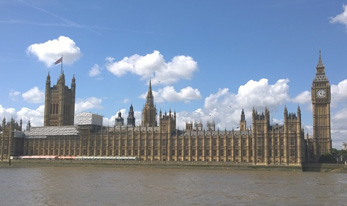The King’s Speech sets out new laws for UK businesses and employers

The new Labour Government has made clear in the King’s Speech that it intends to make swift progress through it’s manifesto promises. Although some measures will take time to complete the statutory processes required it is already time for businesses to sit up, take notice and start to prepare.
Below, we have highlighted the main legislative proposals that we believe will be of particular interest to UK Training customers.
Employment Law
One of the most keenly awaited pieces of legislation is the Employment Rights Bill, aspects of which have been heavily anticipated by Labour voters and trade unions.
Key elements of the Bill include a ban on ‘exploitative’ zero hours contracts, which are used by many gig economy contractors. The practice of ‘fire and rehire’ will also be banned, except in extreme circumstances. It will also see the removal of qualification periods and pay levels for workers to receive various statutory benefits and protections.
Data protection
A new Digital Information and Smart Data Bill will replace the Data Protection and Digital Information Bill ditched by the previous Government at the end of the Parliament. Not all the previous measures will be restored, instead there will be targeted reforms to existing data protection laws but these have not been specified at this stage.
What we do know is that the ICO will be replaced by a new body with a board structure, a chief executive and greater enforcement powers. There will also be steps to expand and secure the work of digital identity verification services.
Companies will be forced to report and give detailed information about cyber-security breaches. The Cyber Security and Resilience Bill is intended to update UK law in line with the EU’s Cyber Resilience Act.
VAT
The Government has confirmed that VAT will become payable on private school and boarding fees. Since the King’s speech, the Chancellor has announced that this will take effect from 1st January 2025. The changes will present significant challenges for all private schools and associated services and there is very little time to prepare.
Many private schools will never have registered for VAT before and the administrative burden and processes will be entirely new to them. When they have registered for VAT, they must learn how to take advantage of the opportunities to recover VAT for the first time on expenditure on taxable supplies and capital projects.
Financial services
The financial services sector will be affected by several significant developments. The new Government will establish a National Wealth Fund, capitalised with £7.3 billion over the life of the next parliament. This is intended to attract additional private investment for projects that encourage economic growth.
New financial measures will seek to encourage consolidation of smaller pension schemes and expand the Financial Services Compensation Scheme. There will also be new legal powers given to a newly-formed auditing regulator.
Planning and construction
There are plans to reform the planning system and devolve more powers locally to make it easier to build more homes. The Planning and Infrastructure Bill will speed up the amount of time it takes for approval of new building plans, including large scale industrial projects.
New mandatory targets for local authorities will be set for housebuilding and each area must produce local housing plans. There will be a review of the green belt to identify ‘grey belt’ land and meet local housing needs, while making brownfield sites the default choice. Land released in the green belt will be subject to ‘golden rules’, which make clear that development should deliver 50% affordable homes, increase access to green spaces and ensure the necessary infrastructure is in place, such as schools and GP surgeries.
Environment and energy
There are changes planned to boost the green economy, which will provide opportunities for business with the expansion of solar and wind generated power. A new Great British Energy Company will be formed with £8.3bn to invest in green energy projects. The commitment to net zero will involve some restrictions though, such as a return to the early phasing out of new petrol and diesel vehicles by 2030.
Renters reforms
Landlords will face restrictions on their ability to evict tenants under the re-introduced Renters’ Rights Bill. This legislation, strengthened by Labour, will also give tenants the right to challenge unreasonable rent increases.
National issues
Further Bills covering wider societal issues will be introduced regarding rail nationalisation, water company regulation, border security and smoking.
Conclusion
This Parliamentary session is set to be one of the busiest for many years with more than 40 Bills set to be introduced. Every business in the country will be affected in some way by these legislative changes. Make sure you are aware of what your organisation needs to do to prepare.
Remember to keep checking the UK Training website. We will be monitoring developments carefully and will help our customers to manage the changes with our broad range of ‘update’ and regular training courses.
Written by Paul Murphy
Connect with me on Linkedin here
Follow UK Training on Linkedin here
Make sure that you are fully up to date with the requirements of Company Law, Employment Law and tax rules by attending one of UK Training’s very popular ‘update’ training courses…


